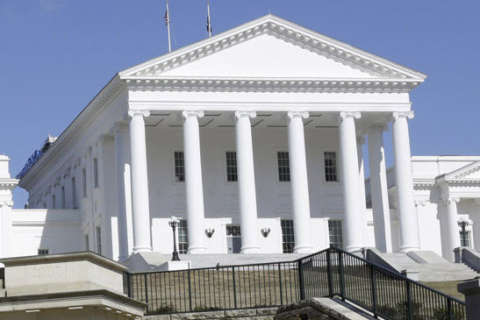WASHINGTON — Amid threats of hacking or other disruptions during the 2018 midterms, D.C.-area election officials said Wednesday that the region has taken steps to prevent any problems.
“In general, access to both voting equipment and voter registration systems is tightly controlled and on an as-needed basis,” Loudoun County Deputy Registrar Richard Keech told the Metropolitan Washington Council of Governments.
The briefing on election preparations from Keech, Rockville City Clerk Kathleen Conway and D.C. Board of Elections Assistant Registrar DeAnna Smith came just a day after top intelligence leaders warned the U.S. Senate Intelligence Committee that Russian and other efforts to influence U.S. elections continue.
While much of that meddling effort has been focused on swinging public or official opinion through social media and other messaging campaigns, it has also included probes of voter registration databases in a number of states such as Maryland and Virginia.
The databases are online to allow for voter registration and access by registrars.
“Clearly, security and data integrity and ways to manage that are of utmost importance both with the election process itself and registration lists and voter information,” Conway said.
Each state has security procedures for the registration databases, including checks meant to keep the information up to date.
In the event of a crash, there are backups and other records that could allow elections officials to recreate the registration database.
Voters could also cast provisional ballots if there were problems on Election Day, Falls Church Electoral Board Secretary Renee Andrews said.
“If, somehow, a voter registration database were infiltrated and a valid voter’s name was removed, that voter comes into the polling place, fills out a provisional ballot — which is a paper ballot — and then, the electoral board has to research to find out how did this person get removed … that research is being begun within 10 minutes of the person voting,” Andrews said.
All elections are run by state or local officials.
Ballot counting equipment more secure
Actual voting equipment, like the scanners that count ballots, is not connected to the internet, which provides some defense against tampering.
“The likelihood of the equipment being hacked is fairly slim. The databases are a little more vulnerable, of course, but we do have a lot of security measures in place to protect and backup that data,” Keech said.
Concerns about what can happen with access to the voting machines though led Virginia’s State Board of Elections to decertify electronic touch-screen voting machines last summer after evidence that they could be hacked.
Falls Church and Alexandria rushed to purchase replacement paper ballot systems that were implemented for November’s governor’s race. There is now some type of paper ballot record in all local jurisdictions. Ballot scanning machines are tested before each election.
The Council of Governments also plans to examine the safety and security of public buildings more generally this year, which Chairman Matt Letourneau of Loudoun County said will include safety and security of students and staff on election days at schools used as polling places.
The next elections in the region are:
- May 1 in some cities and towns in Northern Virginia (Fairfax City, Clifton, Vienna, Hamilton, Lovettsville, Middleburg, Purcellville, Round Hill, Dumfries, Haymarket, Occoquan, Quantico);
- Congressional primaries and a potential U.S. Senate Republican primary in Virginia on Jun. 12;
- D.C.’s mayoral and council primary on Jun. 19;
- and Maryland’s primary for statewide offices, Congress, Senate and county offices on Jun. 26.
The statewide general elections are scheduled for Nov. 6.






